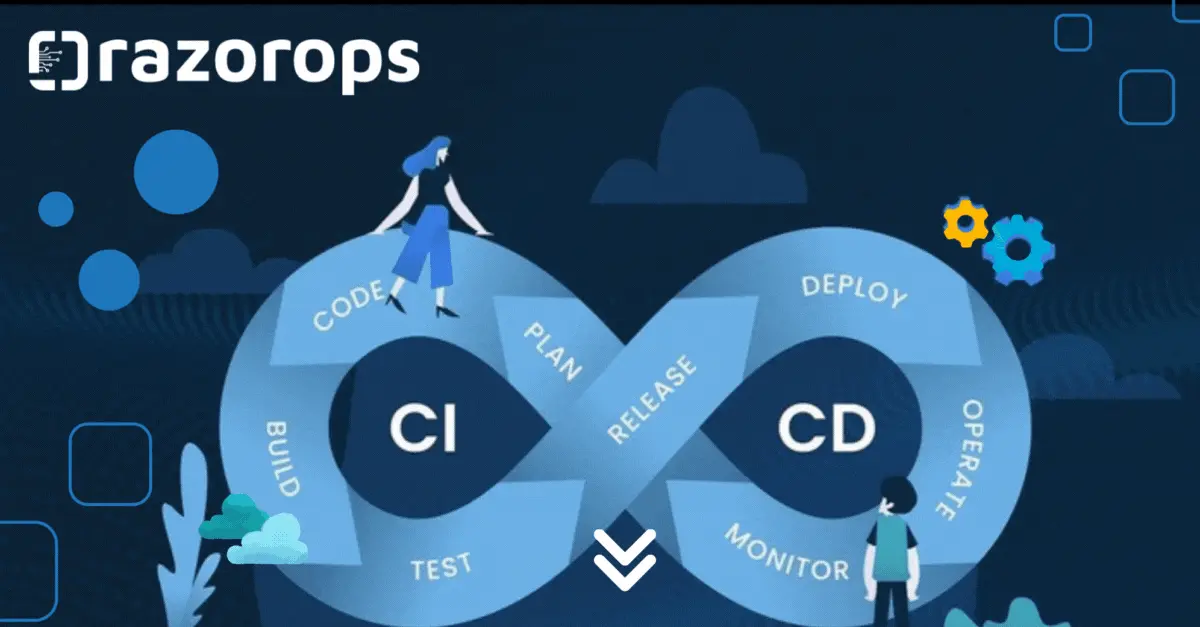
CI/CD Pipelines Optimizing the DevOps Workflow
In today’s fast-paced software development landscape, optimizing the DevOps workflow is crucial for achieving efficiency, speed, and reliability. Central to this optimization are Continuous Integration and Continuous Delivery (CI/CD) pipelines, which streamline the process from code commit to deployment and beyond. Here’s a comprehensive guide on how CI/CD pipelines can enhance your DevOps practices:
Understanding CI/CD Pipelines
Continuous Integration (CI) involves automatically testing and integrating code changes into a shared repository multiple times a day. It ensures that new code additions do not break the existing codebase, promoting early bug detection and collaboration among team members.
Continuous Delivery (CD) extends CI by automating the deployment process, making software releases reliable, repeatable, and efficient. It enables teams to deliver updates to production quickly and safely.
Benefits of CI/CD Pipelines
-
Automation and Efficiency: CI/CD pipelines automate manual tasks such as building, testing, and deploying code, reducing human error and freeing up developers’ time for more critical tasks.
-
Faster Time to Market: By automating the integration and delivery processes, teams can release updates to customers more frequently, accelerating the time from code commit to production.
-
Consistency and Reliability: Automated testing ensures consistent quality across releases, while automated deployments reduce the risk of deployment failures and downtime.
-
Feedback Loop: CI/CD pipelines provide rapid feedback on code changes, allowing developers to identify and fix issues earlier in the development cycle.
Key Components of CI/CD Pipelines
-
Source Control: Use of version control systems like Git to manage and track changes to the codebase.
-
Build Automation: Tools like Jenkins, CircleCI, or GitLab CI/CD automate the process of compiling code, running tests, and generating artifacts.
-
Automated Testing: Incorporate unit tests, integration tests, and acceptance tests into the pipeline to maintain code quality and prevent regressions.
-
Deployment Automation: Automate deployment to different environments (development, staging, production) using tools like Kubernetes, Docker, or Terraform.
-
Monitoring and Feedback: Integrate monitoring tools to track application performance and gather feedback on deployments for continuous improvement.
Best Practices for Optimizing CI/CD Pipelines
-
Keep Pipelines Fast and Efficient: Minimize build times by parallelizing tasks and optimizing dependencies.
-
Use Infrastructure as Code (IaC): Treat infrastructure configuration (e.g., using Terraform) as code to ensure consistency and reproducibility across environments.
-
Implement Security Checks: Integrate security scanning tools (e.g., SonarQube, OWASP ZAP) into the pipeline to detect vulnerabilities early in the development process.
-
Versioning and Artifact Management: Use versioning for artifacts and automate their storage and retrieval to ensure traceability and rollback capabilities.
-
Continuous Learning and Improvement: Regularly review and refine the pipeline based on metrics and feedback to enhance performance and reliability.
Conclusion
CI/CD pipelines are essential for modern DevOps practices, enabling teams to deliver high-quality software faster and more reliably. By automating key aspects of the development lifecycle, organizations can achieve greater efficiency, reduce time to market, and foster a culture of continuous improvement. Embracing CI/CD pipelines is not just about adopting new tools but also about transforming how teams collaborate, innovate, and deliver value to customers.
Tutorials & Guides
Top Reading Recommendations
Upcoming Events
July 20, 6 :30 PM (PST)
July 20, 6:30 PM – July 21, 5:30 AM (PST)
July 23, 6:30 – 7:30 AM (PST)
DevOps Jobs
Google - Check out all the jobs here
Accenture - Check out all the jobs here
Infosys - Check out all the jobs here
Microsoft - Check out all the jobs here
PS- We publish this newsletters every week, Subscribe and share with your friends. We hope this newsletter has provided valuable information. Follow RazorOps Linkedin Page Razorops, Inc. and give a FREE try to Our SaaS CICD product Sign up for RazorOps today and embark on a journey of automation, efficiency, and innovation. Your team and your projects deserve the best CICD product.